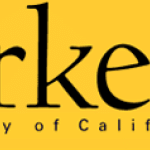- Industry: Education
- Number of terms: 4017
- Number of blossaries: 0
- Company Profile:
Along with quarks, leptons make up all known matter. Unlike quarks, leptons do not participate in strong interactions. Neutrinos and electrons are two common examples. There are three flavors of leptons: electron, muon, and tau.
Industry:Physics
A hypothetical electrically neutral supersymmetric particle. The superpartners of the photon, Z-boson, and Higgs Boson actually get blended together. These particles are called as neutralinos.
Industry:Physics
an uncharged, weakly interacting lepton, most commonly produced in nuclear reactions such as those in the sun. There are three known flavors of neutrino, corresponding to the three flavors of leptons. Recent experimental results indicate that all neutrinos have tiny masses.
Industry:Physics
One of the constituents of atoms. Along with the proton, the neutron is found in the nuclei (centers) of atoms. Neutrons have no electric charge, and are composed of two down quarks and an up quark.
Industry:Physics
The gauge boson that mediates the force of electromagnetism. The photon is the quantum of light.
Industry:Physics
the anti-matter partner of the electron. It is identical in all respects to an electron, but it has positive charge.
Industry:Physics
One of the constituents of atoms. Along with the neutron, the proton can be found in the nuclei (centers) or atoms. Protons have a positive electric charge, and are composed of two up quarks and a down quark.
Industry:Physics
The theory of the strong interaction. It describes the exchange of gluons between quarks.
Industry:Physics
At very small distances, the principles of quantum mechanics are necessary to accurately describe physical phenomena. Developing a theory that incorporates both the principles of quantum mechanics and gravity, a theory of "quantum gravity", has proven to be extremely difficult. String theory is the first real hope of providing such a theory.
Industry:Physics
